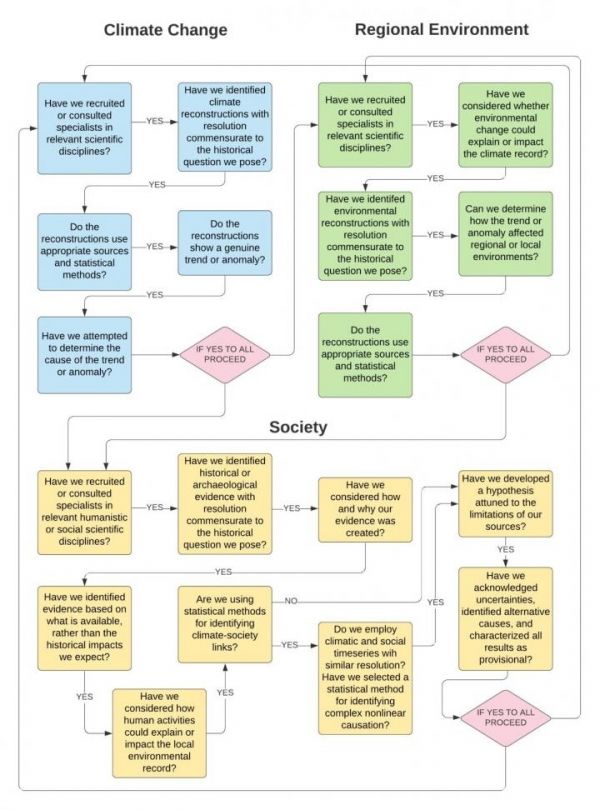As the signs of today’s human-caused climate change become ever more alarming, research into the ways past societies responded to natural climate changes is growing increasingly urgent. Scholars have often argued that climatic changes plunge communities into crisis and provide the conditions that lead societies to collapse, but a growing body of research shows that the impacts of climate change on past populations are rarely so straightforward.
In a new paper published in Nature, scholars in archaeology, geography, history and paleoclimatology present a framework for research into what they term ‘the History of Climate and Society’ (HCS). The framework uses a series of binary questions to address problems and biases common to HCS and requires researchers to consult or include scholars from a variety of scientific, social scientific and humanistic disciplines.
“We wanted to figure out why so much research in this area is focused on disaster and how we could encourage more research into the strategies that allowed past populations to cope with climate change,” says Dagomar Degroot, associate professor of environmental history at Georgetown University and the study’s first author. “With this framework we hope to help other researchers find more diverse connections between climate and society, which we hope will lead both to a more realistic understanding of the past and a better guide to the future.”
Read more at: Max Planck Institute for the Science of Human History
Binary questions that address four key challenges in HCS: interpreting evidence, bridging dynamics across scales, establishing causal mechanics, and estimating uncertainty (Photo Credit: Degroot et al., 2021)


